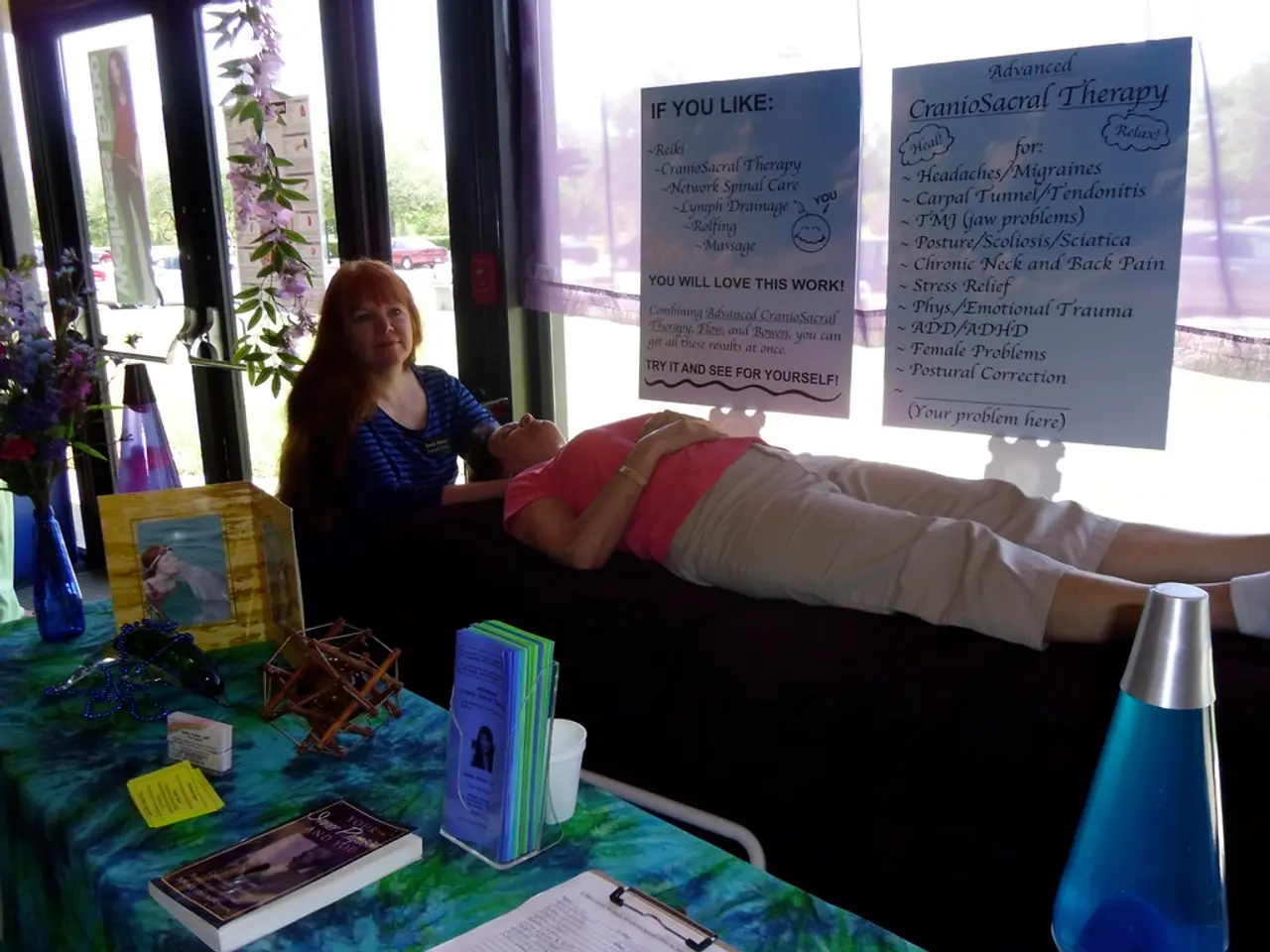Distinguishing Anxiety from Depression: Crucial Differences and Effective Strategies for Coping
Anxiety and depression are two distinct but often co-occurring mental health conditions that impact millions of individuals worldwide. While they share some similarities, they differ primarily in their emotional focus, symptoms, and treatment approaches.
Differences in Causes and Emotional Focus
Anxiety is characterized by excessive worry and fear about the future or potential threats, often involving anticipation of danger or negative outcomes. It can be triggered by stress, uncertainty, or trauma. On the other hand, depression involves persistent feelings of hopelessness, sadness, and low energy, often without a clear external trigger or sometimes following stressful events. It reflects a diminished interest or pleasure in activities.
Symptoms
Anxiety symptoms include racing thoughts, excessive worry, physical tension (tight chest, knotted stomach, clenched jaw), restlessness, difficulty sleeping, and sometimes panic attacks characterized by sudden intense fear with physical symptoms like shortness of breath, dizziness, and sweating.
Depression symptoms, however, include low motivation and energy, difficulty making decisions, feelings of heaviness, fatigue that is not relieved by sleep, changes in sleep (sleeping too much or too little), loss of interest or pleasure in previously enjoyed activities, and a pervasive sense of hopelessness.
Treatment Strategies
Anxiety is often treated with cognitive behavioral therapy (CBT), acceptance-based behavior therapy focused on mindfulness and acceptance skills, and sometimes medication. Exposure therapy is specifically effective for panic disorder.
Depression treatment may include psychotherapy, medication (antidepressants), lifestyle changes, and in some cases, specialized therapies like cognitive behavioral therapy. Situational depression symptoms can improve over time, but clinical depression may require more intensive and prolonged treatment.
Managing Mental Health
Regular exercise, a healthy diet, adequate sleep, and stress management techniques can improve mental health. Additionally, seeking professional care is essential for both diagnosis and treatment, especially in cases of comorbid anxiety and depression.
Environmental factors, social isolation, lack of support systems, work-related stress, relationship problems, financial difficulties, and exposure to traumatic events can all contribute to the development of anxiety and depression. It is crucial to address these factors to maintain mental wellbeing.
Understanding the causes, symptoms, and treatment strategies for anxiety and depression can help in early identification and effective management. Both conditions are real medical disorders needing appropriate diagnosis and care.
- Engaging in regular exercise, such as running, can help reduce symptoms of anxiety and depression, contributing to overall mental health.
- Meditation, a practice focused on mental clarity and emotional well-being, can be an effective tool in managing symptoms of anxiety and depression.
- Strengthening muscles through fitness and exercise can improve not only physical health but also mental well-being, reducing the risks of anxiety and depression.
- Motivation is a key factor in adhering to treatment strategies for anxiety and depression, as it helps individuals take proactive steps towards recovery.
- Training in the principles of cognitive behavioral therapy (CBT) can help individuals better understand and manage their mental health, providing strategies for dealing with anxiety and depression.
- Adequate nutrition and a balanced diet play an essential role in overall health-and-wellness, including mental health, as poor nutrition can exacerbate symptoms of anxiety and depression.
- In the workplace, implementing a workplace-wellness program focusing on mental health, fitness-and-exercise, and stress-management techniques can help employees manage symptoms of anxiety and depression.
- Skin-care routines can indirectly support mental health by promoting feelings of self-care and self-love, which can help combat symptoms of anxiety and depression.
- Professional care, including consultation with mental health specialists and psychologists, is crucial in diagnosing and treating anxiety and depression, ensuring the most effective treatment strategies are employed.
- Seeking support from friends, family, and other social networks can help individuals cope with anxiety and depression, providing emotional support and encouraging healthy lifestyle choices, such as exercise, proper nutrition, and stress management techniques.




